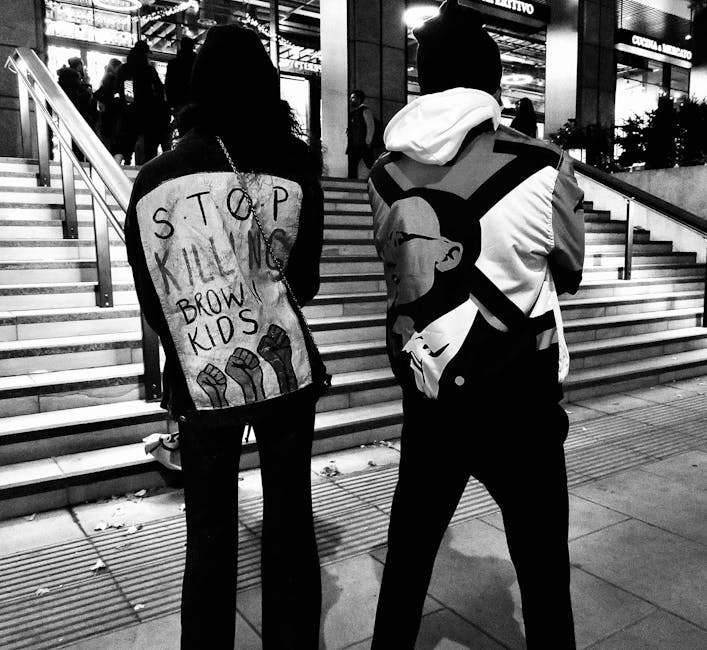Table of Contents
You know, sometimes I sit here, look out the window at the endless grey sky, and I just think about what a mess we make of things. Especially history. Folks wanna put everything in a neat little box, tie it up with a pretty bow. Make it easy to swallow, like some kind of bland, pre-packaged meal deal. But real history? The stuff that changes things? It’s never neat. It’s usually a chaotic, bloody, beautiful riot. And nobody, I mean nobody, embodies that riot quite like Malcolm X.
Some folks today, they only know the one Malcolm. The angry one. The one the TV clips always showed, shouting, finger-wagging. Always the same damn clip, too. It’s like they just picked one frame and froze it, like that was the whole damn movie. Bless their hearts, they miss the entire reel. They miss the transformation, the absolute, gut-wrenching, soul-shaking change the man went through. That’s the real story, ain’t it? The journey. From Little, to Detroit Red, to X, to El-Hajj Malik El-Shabazz. It’s a whole life, not just a soundbite.
From the Streets to the Nation: A Mind Forged in Fire
He wasn’t born Malcolm X, was he? He was Malcolm Little. A kid from Nebraska, then Michigan, who watched his home burn, his father killed. Saw his mother cracked by the system. Sent off to foster homes. A real rough start, that. You ever wonder about that, how much of a man’s fire is just the ash of his burning youth? I do. Seems to me, most of the real fighters, the ones who truly shake things up, they got a raw deal early on. They learned to fight because they had to.
He landed in Boston, then Harlem, knee-deep in the hustle. Numbers, drugs, stealing. The whole damn shebang. A life on the margins, you know? What was that, “What was Malcolm X’s early life like?” people ask me. Oh, it was the kind of life most respectable folks only read about in crime novels. It was gritty. Real gritty. He ended up in prison, as you do, when you’re living that life. And that’s where the real education started, wouldn’t you say? Not in some fancy university lecture hall, but in the prison library. Hour after hour, reading, writing, copying the dictionary. Imagine that. A thirst for knowledge so powerful, it could only be quenched by every single word in the English language. That’s dedication. Or maybe desperation. Probably a bit of both.
The Shift in Perspective: Beyond the Prison Walls
It was in prison, too, that he found the Nation of Islam. Elijah Muhammad’s teachings. And for a man who felt absolutely lost, stripped of his identity by a system that never recognized him, that message must have felt like a lifeline. He shed the “slave name” Little, took up “X.” A big ol’ question mark, that X, standing for the lost African name. An absolute rejection of the past. Strong stuff, that. It resonated with so many who felt the same way. The appeal, well, it wasn’t complicated for a lot of folks. It was direct. It was angry. And it offered a kind of dignity that was sorely missing for Black people in America.
The Firebrand Years: Speaking Truth to Power
When he got out, Malcolm X became the Nation’s most articulate, most charismatic spokesman. He didn’t just talk; he preached. He dissected the hypocrisy, the systemic racism, the sheer, brutal unfairness of it all. He spoke for the folks in the ghettos, the ones left out of the mainstream civil rights movement’s narratives. The ones tired of turning the other cheek. They wanted justice, and they wanted it yesterday. And Malcolm X gave voice to that rage. A lot of people, even those who disagreed with him, respected his intelligence, his quick wit. He’d wipe the floor with interviewers, leave them sputtering. You watch those old interviews, and you realize this man was operating on a different intellectual plane. He was sharp, man, razor sharp.
“Was Malcolm X a hate-monger?” some of the younger lot ask me sometimes. And I just kinda sigh. See, he said things that were hard to hear. He called out white supremacy for what it was. He said Black people should defend themselves, by any means necessary. That scares a lot of folks. Especially those who benefit from things staying calm and quiet. He certainly didn’t mince words. But hate? He was angry, sure, angry at the injustice. And angry can sometimes sound like hate, especially when it’s aimed at your comfortable worldview. But I reckon it was more about a fierce love for his people, a desperate desire for their liberation, that fueled that anger.
The Mecca Pilgrimage: A World Transformed
And then, the break with the Nation. A messy, painful public split. He found himself alone, vulnerable, targeted. And what does he do? He goes to Mecca. That pilgrimage, man, that changed everything. Absolutely everything. He saw Muslims of all colors, all races, praying together, interacting as equals. The rigid, race-based dogma of the Nation of Islam shattered in his mind. Just evaporated. That’s a powerful experience, that, when your entire worldview just collapses, and you build a new one from the rubble.
He came back a different man. El-Hajj Malik El-Shabazz. He started talking about human rights, not just civil rights. About international solidarity. About reaching out to white allies who were genuinely committed to justice. It was a massive pivot. A lot of his old followers didn’t get it. Some folks thought he’d gone soft. Others, they saw a true leader emerging, one who could unite. It’s a classic dilemma, isn’t it? When you grow, some people just can’t keep up. They’d rather you stay the person they knew, the one who fit their box. Even if that box is too small for you now.
The Human Rights Vision: Beyond American Borders
This new vision, the global human rights angle, that was radical. It took the fight out of the American backyard and put it on the world stage. He wanted to take the U.S. to the United Nations for its treatment of Black citizens. That scared the living daylights out of the establishment. “How did Malcolm X’s views change after his pilgrimage to Mecca?” is another common query. Drastically, is the answer. From black nationalism to a broader, more inclusive humanism. He still believed in self-determination, absolutely. But his definition of “us” and “them” broadened, became less about race and more about oppression. He said, “I’m for truth, no matter who tells it. I’m for justice, no matter who it’s for or against.” That right there, that’s the core of the man, the evolving man.
Malcolm X in 2025: A Digital Prophet?
Imagine Malcolm X today. In 2025. With Twitter, TikTok, the whole blasted carnival of social media. Good grief. Could you even fathom it? He’d probably break the internet every other day. He was a master orator, charismatic, knew how to use media, even when it was against him. He’d craft these incredibly sharp soundbites. Those short, impactful phrases that just cut through the noise. But the sheer volume of noise now… it’s a different beast. Would he be able to cut through the algorithms? The curated feeds? The constant outrage cycles?
I reckon he would. He had an authenticity about him. A raw, unvarnished honesty that people crave. He never sounded like he was reading from a script. He spoke from the gut, from the heart, from a lifetime of pain and learning. That’s what’s missing a lot of times in this digital age. Everyone’s so busy crafting their “brand,” they forget to just be. “Would Malcolm X’s message be relevant today?” Some folks ask this like it’s a trick question. Is systemic inequality gone? Is racial injustice a thing of the past? Are people still struggling for dignity and self-determination? Course his message is relevant. More relevant than ever, I’d argue. The language might shift, but the underlying issues? They linger, like a bad smell you just can’t get rid of.
The Uncomfortable Truth: Why He Still Matters
He made people uncomfortable. That’s why they demonized him. That’s why they tried to silence him. And that’s precisely why he’s important. Growth, real growth, it doesn’t happen in comfort. It happens when you’re shoved outside your preconceived notions, when your tidy little world gets rattled. Malcolm X was a rattle, a thunderclap, a seismic shift. He forced people to look at the ugly truths of American society, not just the pretty facade. And some folks, they just can’t handle that kind of directness. They prefer the soft-pedaled version, the one that makes them feel good about themselves.
I’ve seen it firsthand, managing content for all these years. Everyone wants the easy answer, the feel-good story. The “inspiration porn” as I call it. Malcolm X? He ain’t inspiration porn. He’s a challenge. A demanding, unapologetic challenge. He makes you think. Makes you question. And that, my friends, is valuable. More valuable than any damn clickbait article out there, I can tell you that for free.
The Legacy’s Contradictions: A Man of Many Faces
It’s funny, isn’t it? How we try to simplify historical figures. Malcolm X, though, he resists simplification. He was a complicated man. Brilliant, angry, deeply spiritual, pragmatic, contradictory. He started out condemning integration, ended up seeing the potential for unity. He advocated for self-defense, was himself assassinated. What “Was Malcolm X’s biggest impact?” you might ask. Hard to nail down just one. Maybe it was proving that there was another way, another voice, another path for Black liberation beyond non-violence. Or maybe it was showing that a man could completely transform himself, his beliefs, his very being, and still stand firm in his convictions. A walking, talking, breathing contradiction, he was. Just like life, ain’t it? A big ol’ mess of contradictions. And that’s what makes him so endlessly fascinating. He was flawed, sure. We all are. But his journey, his absolute refusal to stay put, to stop growing, that’s the gold right there.
Sometimes I think about how people view him now. Some see him as a black supremacist, some as a human rights champion, some as a Muslim leader. All of them are right, and all of them are wrong, in bits and pieces. He was all that, and more. He contained multitudes, like Walt Whitman said. He still makes folks squirm. And that’s alright by me. Sometimes, a good squirm is exactly what you need. It means you’re alive, and you’re learning. And sometimes, you know, that’s all you can ask for. A lifetime of learning, even if it ends too soon, and too violently. A lot of lessons in that man’s life, if you’re willing to look past the easy narratives and the quick judgments.












